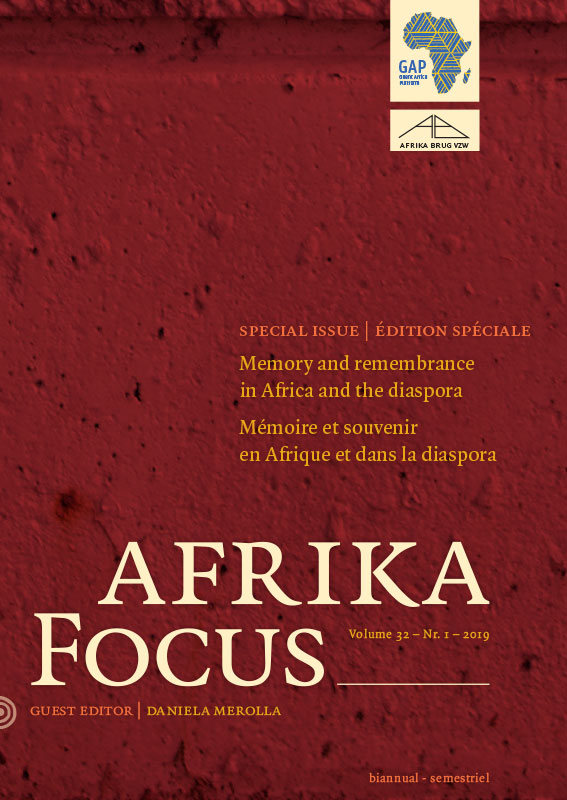Orality, Memory and the new African Diaspora Poetry: Examining Tanure Ojaide's Poetics
DOI:
https://doi.org/10.21825/af.v32i1.11789Abstract
The influence of traditional oral poetic forms on modern African poetry has been significant. Fascinated by oral forms which their respective communities relied on (to inform, teach, and correct erring members) before the advent of literacy, modern African writers borrow from these oral traditions and blend them with the features of the written Western literary forms. This appropriation of the oral poetic techniques by modern African poets continues today, as is clearly evident in the writings of many contemporary African poets, whose scripted works are seen to have drawn much in terms of content and form from the African oral poetic tradition. Following in this trend, the new African diaspora poets have also maintained the practice of skillfully blending the rich African verbal art and the modern (written) poetic forms to articulate the experiences of their African homeland as well as those of the diaspora, in order to construct and project their identities and visions of a new life in their lived world. In order to explore how through recourse to memory, “new African diasporas” (African-descended people who migrated out of Africa, during the postcolonial era and who live and practice their art outside the African homeland) utilize African oral art techniques in their writings, this essay analyses the poetry of Tanure Ojaide. KEYWORDS: ORALITY, ORAL TRADITION, MEMORY, NEW AFRICAN DIASPORADownloads
Published
How to Cite
Issue
Section
License
Authors who publish with this journal agree to the following terms
Authors retain copyright and grant the journal right of first publication with the work simultaneously licensed under a Creative Commons Attribution License that allows others to share the work with an acknowledgement of the work's authorship and initial publication in this journal.
Authors are able to enter into separate, additional contractual arrangements for the non-exclusive distribution of the journal's published version of the work (e.g., post it to an institutional repository or publish it in a book), with an acknowledgement of its initial publication in this journal.
Authors are permitted and encouraged to post their work online (e.g., in institutional repositories or on their website) prior to and during the submission process, as it can lead to productive exchanges, as well as earlier and greater citation of published work (See The Effect of Open Access).


